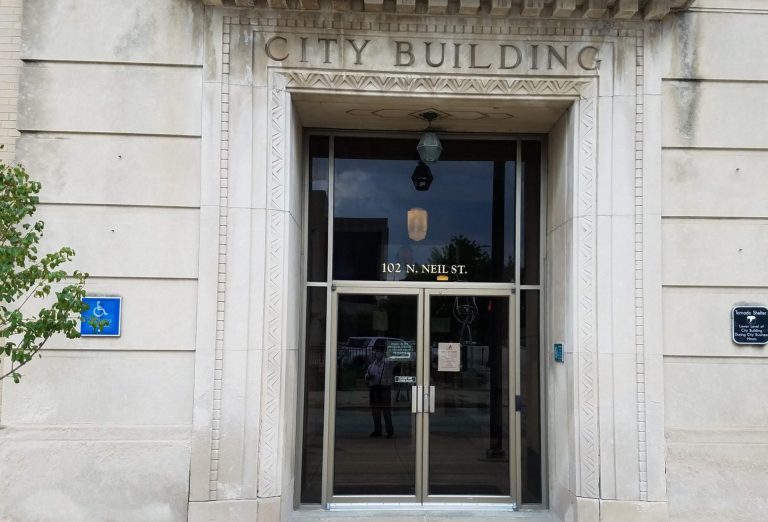CHAMPAIGN — With city revenues down due to the COVID-19 outbreak, the Champaign City Council Tuesday night endorsed the idea of cutting spending by cutting city staff. They want to do this by offering buyouts to an estimated 15 to 25 employees who agree to leave voluntarily.
During the Great Recession, the city of Champaign cut seventeen staff positions with a Voluntary Separation Incentive Program that paid city employees to resign. Finance Director Kay Nees says they want to do that again, but cautions that such a move will affect city services, just as it did nearly a decade ago.
“In the years since,” said Nees, “the city has increased services, but made only a handful of staff increases. As a result, any reductions to budget will need to include reductions to services.” And the Champaign Finance Department would review each separation to see if it actually saves the city an appreciable amount of money. Every full-time employee who takes part in the Voluntary Separation Incentive Program before July 1, 2021 would receive a payment of $15,000 to $60,000. Smaller payouts would be available for employees who separate during the latter half of 2021.
Not all city staff would be eligible for the voluntary separations; for instance police officers and fire fighters covered by union contracts would not be eligible.
Nees says she can’t say exactly how services will be affected. They’re working now to identify 15% spending cuts in each city department, which she says is actually more than they will need.
“By having savings ideas above and beyond what we need,” said Nees, “it gives us an opportunity to consider exactly what services that we may want to reduce during this time period, as well as if there’s any additional services that we may want to consider.”
Nees says Champaign’s city government is expecting revenues from taxes and fines to fall short by some $11.2 million during the current fiscal year. That’s almost as much as the city currently has in its reserves.
Under questioning from council members, Nees explained that without the additional spending reductions, the city of Champaign would spend half of its current reserves by next July, when the current fiscal year ends. In fact, Nees said the reserves would empty out in about six to eight weeks, if all other revenues were suddenly removed. And she said if the city wanted to cover the budget shortfall with higher property taxes, it would need to increase them by 20 to 30 percent.
Council member Will Kyles joined other members of the Champaign City Council in endorsing the voluntary incentive program. But he says the city’s social ills won’t go away, just because programs to address them are cut back.

